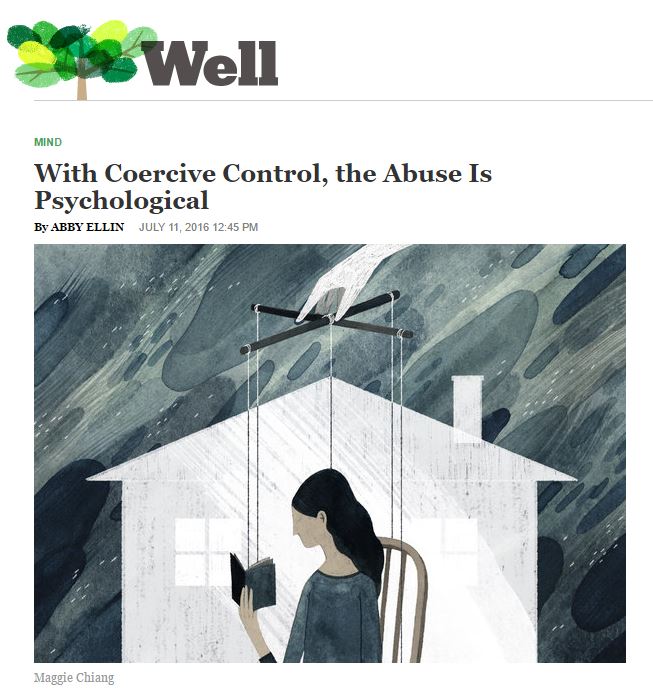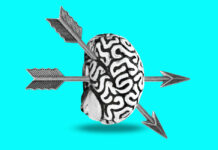“Coercive control describes an ongoing and multipronged strategy, with tactics that include manipulation, humiliation, isolation, financial abuse, stalking, gaslighting and sometimes physical or sexual abuse,” Abby Ellin writes for the New York Times Well blog. “While the term ‘coercive control’ isn’t widely known in the United States, the concept of nonphysical forms of mistreatment as a kind of domestic abuse is gaining recognition. In May, the hashtag #MaybeHeDoesntHitYou took off on Twitter, with users sharing their own stories.”
-
“With coercive control the abuse is psychological.” Wouldn’t this therefore imply all coerced and forced psychiatric treatment is psychological abuse? That was my experience of it, at least. “And I’m not the only one.”
-
The astonishing thing in this NYT piece (and I’ll take the opportunity to note that NYT consistently publishes the worst ‘mental health’ information) is that one of the subjects of the piece who was evidently coerced and controlled “…has a Ph.D. in counseling psychology, and specializes in child abuse and violence against women.”
She had advanced education in exactly and precisely those issues but couldn’t see it when it happened to her. We’re all fallible humans prone to denial, but I think this example says something quite damning about the quality of academic psych education. These same people are ‘helping’ other vulnerable people? One of many reasons I steer clear of all ‘mental health’ professionals.
Liz Sydney
-
May I point out that this precise thing happened to me in high school. I had this exact type of relationship with my so-called “best friend.” Her name was Kate. After that, honestly it was hard to say that name, I still shudder a little bit. Anyway, I found it wasn’t easy to speak of it to my peers, that is, college-age kids. At 21 or even 25 you aren’t mature enough to handle hearing something like, “I was someone’s slave.” You can’t. So I was forced to keep it all inside. I found that if I tried to tell a friend that person didn’t want to speak to me anymore, so I figured I had to keep it all a secret.
Then when I started therapy at 23 I tried telling the therapists. Now, I’m 58, and looking back over 34 years of therapy, I’m really shocked that none of the therapists gave a hoot that I was another girl’s slave as a teen. I mean, they acted like it was nothing, or no big deal. Or they’d brush it aside. This wasn’t your everyday relationship. All those years I never told a soul. I swear I told more in my own published memoir (which didn’t sell, ironically) than I did in all those years of bogus mental health care! Why did they focus on my mother so much? I guess blaming the mother was the trendy thing to do, plus since we were Jewish, blaming the Jewish mother was doubly trendy.
Thank goodness for my childhood friends, kids from my public school, classmates who will by all means back me up on this. Otherwise, someone might claim I’m “sick” and either lying or paranoid. For sure, none of those therapists gave a hoot. You can find high school kids in relationships like these who post on YouTube. Usually these are dating situations.
-
Hi Julie,
Sadly, I’m not surprised that no therapist in decades had the capacity to your story, or that they were more interested in slamming a Jewish mother.
Speaking for myself, I’m finding surprising relief of persistent, old psychic wounds from the unlikeliest place: ‘Emotional Freedom Tapping’ (often referred to simply as EFT). I dug into the basis of energy healing and gave it a try. Glad I did.
Best to you,
Liz Sydney
-
Whoops, typo: Meant to write, “…had the capacity to hear your story…”
-
Yes because the patient controls the tapping totally. And chooses to do it. It is self-therapy. I am a believer in researching on your own what works. I am a believer in trying out different things and seeing which things get positive results. I’m also a believer in sharing your findings with others who may have had similar experiences. And…”Go find the others.” The “me too” effect is amazing.
-
-
-















